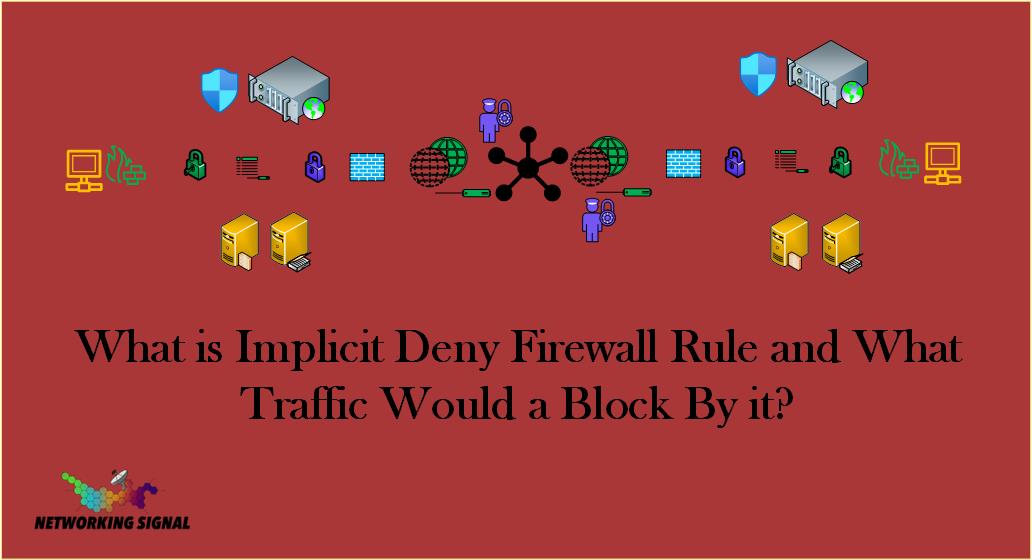What is Implicit Deny Firewall Rule?
An implicit deny firewall rule would block all traffic that is not explicitly allowed by another rule. This would prevent any unauthorized traffic from entering or leaving the network.
This type of rule is often used as a default setting in order to increase security since it ensures that only traffic that has been specifically approved will be able to pass through the firewall.
However, it is important to understand what kind of traffic an implicit deny rule would block, in order to ensure that it is properly configured.
Which Traffic is Block by Implicit Deny Rules?
Implicit Deny rules can block both inbound and outbound traffic.
Inbound traffic is traffic that is coming into the network from the outside. This includes traffic from the internet, as well as any other networks that are not trusted.
Outbound traffic is traffic that is going out of the network to the internet or to other networks.
See Also: What is Network Traffic, its Types, and How is it Measured?
What are the Uses of Implicit Deny Rules?
In general, implicit deny rules should be used to block all inbound traffic, except for the specific traffic that is needed.
- For example, if a company only needs to allow web traffic from certain IP addresses, then an implicit deny rule can be used to block all other inbound traffic. This will ensure that only the approved traffic can reach the company’s network.
Outbound traffic can also be controlled with implicit deny rules.
- For example, if a company only wants to allow outbound traffic to certain IP addresses, then an implicit deny rule can be used to block all other outbound traffic. This will ensure that only the approved traffic can leave the company’s network.
See Also: What is Egress in Networking, Examples and How Does It Work?
Implicit deny rules can also be used to block traffic based on specific ports. Ports are used to identify different types of traffic.
- For example, port 80 is typically used for web traffic, while port 25 is typically used for email traffic. By blocking all traffic on a specific port, it is possible to prevent certain types of traffic from reaching the network.
Protocols are used to define how data is transmitted between two devices.
- For example, the Transmission Control Protocol (TCP) is a common protocol that is used to transmit data over the internet. By blocking all traffic that uses a specific protocol, it is possible to prevent certain types of traffic from reaching the network.
Why It is Important for Large Networks?
Large networks typically have a lot of traffic passing through them. This can make it difficult to properly configure the firewall to allow only the traffic that is needed. As a result, it is often necessary to use implicit deny rules in order to ensure that all unnecessary traffic is blocked.
Using an implicit deny rule can also help to reduce the risk of a security breach. If all inbound traffic is blocked by default, then it is much more difficult for attackers to exploit vulnerabilities in the network.

